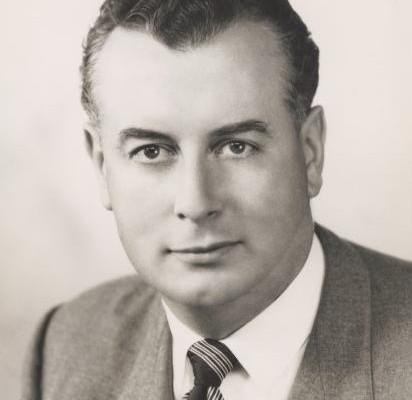When significant figures of state pass away, public discourse tends towards an urgent focus on the macro. Achievements, failings and sound-bite friendly quotes are cobbled together like a Surrealist word game: an exquisite corpse in both form and subject.
Sometimes, however, the symbolic force of a particular individual cannot be contained by the current vernacular of remembrance. Twitter updates, Facebook status declarations and the incessant linking to articles such as this collectively construct a mass digital memento mori, their ultimate ephemerality a fitting reminder of the fleetingness of life itself.
What is perhaps most surprising about the passing of Prime Minister Gough Whitlam at the age of 98 isn’t the fact that he died but that the announcement has hit so many so hard. I am not even remotely old enough myself to have any of my own concrete memories about his time in office, and was barely crawling at the time of the Dismissal. Yet I have friends much younger than me who share the same shocked sensation of a jackhammer to the heart, a sense of foreboding about what a symbolically Goughless Australia might look like. So great is his legacy beyond the specifics of his time in office.
As I remember Gough, I mourn something far greater than the memory of a one-time irrepressible and irreplaceable political leader. I grew up in a house of True Believers, working class Catholics in Melbourne’s Western suburbs. For my mother – passionate, strange and so very beautiful – Gough was positioned in her own sacred Trinity below only JFK and Jesus Christ Himself.
Gough was a part of the furniture. Through my parents, he shaped my political awareness like perhaps no one else has. He was central in the formation of my political moral compass – a notion that feels decidedly old-fashioned and out-of-date in contemporary Australia. The things he believed in, the things he fought for, and the things he fought against provided the backdrop to how ethics, social responsibility, and compassion were talked about at my family’s dinner table as I grew up.
As a child, I knew every single detail of the Dismissal: what happened, who was involved, and the intricate layers of blame and corruption that lead to its culmination. When I was younger, I had no concrete knowledge that this story did not take place in the same narrative universe as the tales of the Brothers Grimm. This seems somehow depressingly fitting today, as the undisguised, moustache-twirling villainy of Tony Abbott and Scott Morrison make it difficult to believe that an Australia dominated by a binary fairy tale logic where the bad guys are winning is just a childish misconception.
Whitlam was fallible, and no doubt the inevitable backlash that marks such a passing will remind us of this with the kind of brutal bad manners that only the Internet is capable of provoking. But my grief – my tiny grief and the tiny grief of so many others – allows a space for this, because the force of Whitlam’s legacy exists in a realm so far beyond the usual discourse of a celebrity death.
For me, Gough embodied an Australia that is very different from the place I find myself living today, a place I feel no longer feel any kind of positive connection to beyond it just happening to be the place my family and friends live, and where I store my stuff. His passing solidifies my sense of ideological alienation from the dominant image of Australia and Australians I see every time I turn on the television or read a ‘newspaper’. ‘It’s time’, ran the famous promotional campaign, and I want to believe that now as urgently as my parents did in the early 1970s. But in a political landscape where both sides of the political spectrum are so bereft of the qualities that Whitlam represented, the question now remains: time for what exactly?






